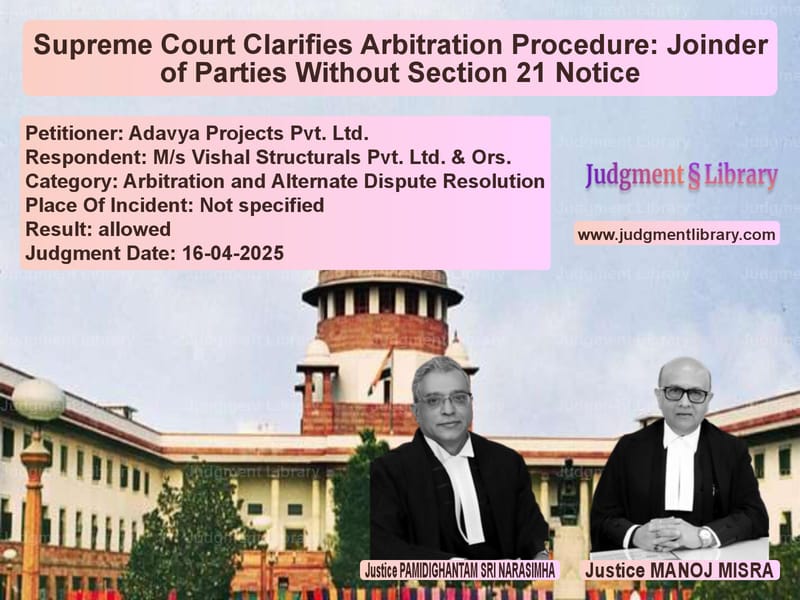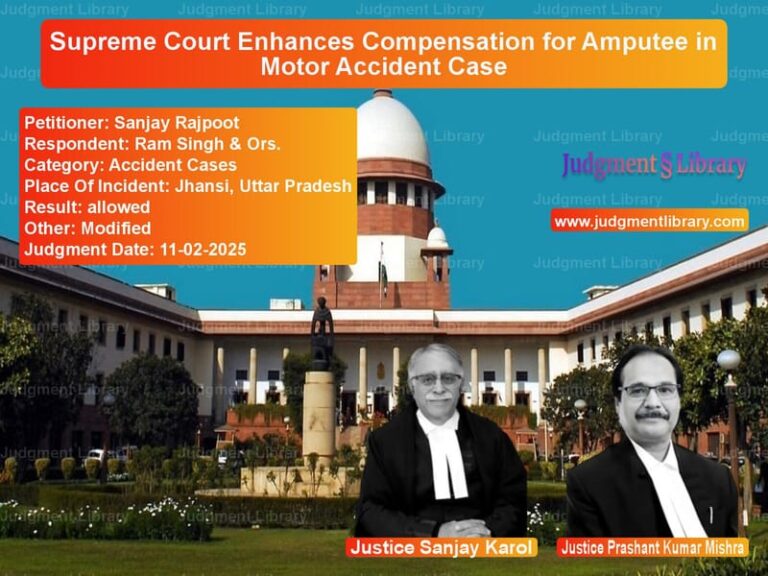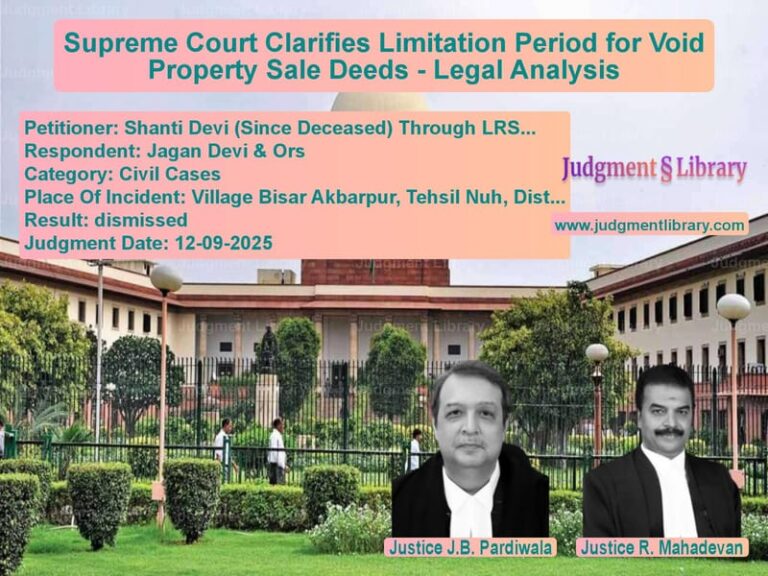Supreme Court Clarifies Arbitration Procedure: Joinder of Parties Without Section 21 Notice
In a landmark judgment delivered on April 17, 2025, the Supreme Court of India clarified important aspects of arbitration procedure under the Arbitration and Conciliation Act, 1996. The case of Adavya Projects Pvt. Ltd. vs M/s Vishal Structurals Pvt. Ltd. & Ors. addressed whether service of notice invoking arbitration under Section 21 and joinder in a Section 11 application are mandatory prerequisites for impleading parties in arbitral proceedings.
The dispute originated from a Limited Liability Partnership (LLP) Agreement dated June 1, 2012 between Adavya Projects (appellant) and Vishal Structurals (respondent no.1) to form Vishal Capricorn Energy Services LLP (respondent no.2). Clause 40 of the agreement contained an arbitration clause covering disputes between partners and the LLP. When disputes arose in 2018 regarding accounts reconciliation for an oil sector project, Adavya issued an arbitration notice under Section 21 only to Vishal Structurals and filed a Section 11 application impleading only Vishal Structurals. However, in the arbitral proceedings, Adavya sought to implead the LLP and its CEO (respondent no.3) as parties.
The arbitral tribunal and subsequently the High Court held that the arbitration couldn’t proceed against respondents 2 and 3 since they weren’t served with the Section 21 notice or made parties in the Section 11 application. The Supreme Court, in its judgment authored by Justice Pamidighantam Sri Narasimha, overturned these decisions and laid down important principles:
Key Findings of the Court:
The Court held that while a Section 21 notice is mandatory to commence arbitration proceedings, its non-service on a party doesn’t automatically preclude their impleadment later. The notice primarily serves to fix the commencement date for limitation purposes and trigger Section 11 jurisdiction. The Court observed: “There is nothing in the wording of the provision or the scheme of the ACA to indicate that merely because such notice was not served on respondent nos. 2 and 3, they cannot be impleaded as parties to the arbitral proceedings.”
Regarding Section 11 applications, the Court clarified that their purpose is limited to constituting the arbitral tribunal through a prima facie examination of the arbitration agreement’s existence. The Court emphasized: “The determination of whether certain persons are parties to the arbitration agreement, and consequently, whether they can be made party to the arbitration proceedings, is left to the arbitral tribunal.” The referral court’s order doesn’t restrict the tribunal’s jurisdiction.
The Court established that the proper inquiry under Section 16 is whether the person sought to be impleaded is a party to the arbitration agreement. The judgment states: “The arbitral tribunal’s jurisdiction over a person/entity is derived from their consent to the arbitration agreement…The proper judicial inquiry…will therefore entail an examination of the arbitration agreement and whether such person is a party to it.”
Applying these principles, the Court found respondents 2 and 3 were indeed parties to the arbitration agreement through their conduct, despite being non-signatories. The LLP (respondent no.2) was created under and operated according to the LLP Agreement, while the CEO (respondent no.3) derived his authority from it. The Court noted: “Their conduct is in accordance with and in pursuance of the terms of the LLP Agreement, and hence, they can be made parties to the arbitral proceedings.”
The judgment provides important clarity on arbitration procedure, particularly regarding when parties can be joined to proceedings. It emphasizes that the fundamental consideration is consent to arbitration as evidenced by the arbitration agreement, rather than procedural formalities like Section 21 notices or Section 11 joinders. The decision reinforces the arbitral tribunal’s kompetenz-kompetenz authority under Section 16 to determine its own jurisdiction, including over parties to the arbitration agreement.
Petitioner Name: Adavya Projects Pvt. Ltd..Respondent Name: M/s Vishal Structurals Pvt. Ltd. & Ors..Judgment By: Justice PAMIDIGHANTAM SRI NARASIMHA, Justice MANOJ MISRA.Place Of Incident: Not specified.Judgment Date: 16-04-2025.Result: allowed.
Don’t miss out on the full details! Download the complete judgment in PDF format below and gain valuable insights instantly!
Download Judgment: adavya-projects-pvt.-vs-ms-vishal-structura-supreme-court-of-india-judgment-dated-16-04-2025.pdf
Directly Download Judgment: Directly download this Judgment
See all petitions in Arbitration Awards
See all petitions in Commercial Arbitration
See all petitions in Enforcement of Awards
See all petitions in Judgment by P.S. Narasimha
See all petitions in Judgment by Manoj Misra
See all petitions in allowed
See all petitions in supreme court of India judgments April 2025
See all petitions in 2025 judgments
See all posts in Arbitration and Alternate Dispute Resolution Category
See all allowed petitions in Arbitration and Alternate Dispute Resolution Category
See all Dismissed petitions in Arbitration and Alternate Dispute Resolution Category
See all partially allowed petitions in Arbitration and Alternate Dispute Resolution Category







